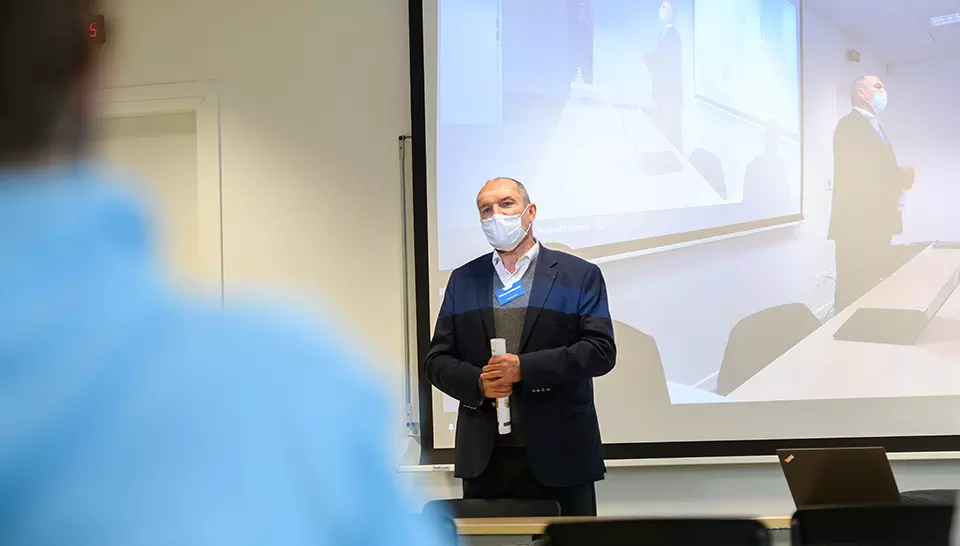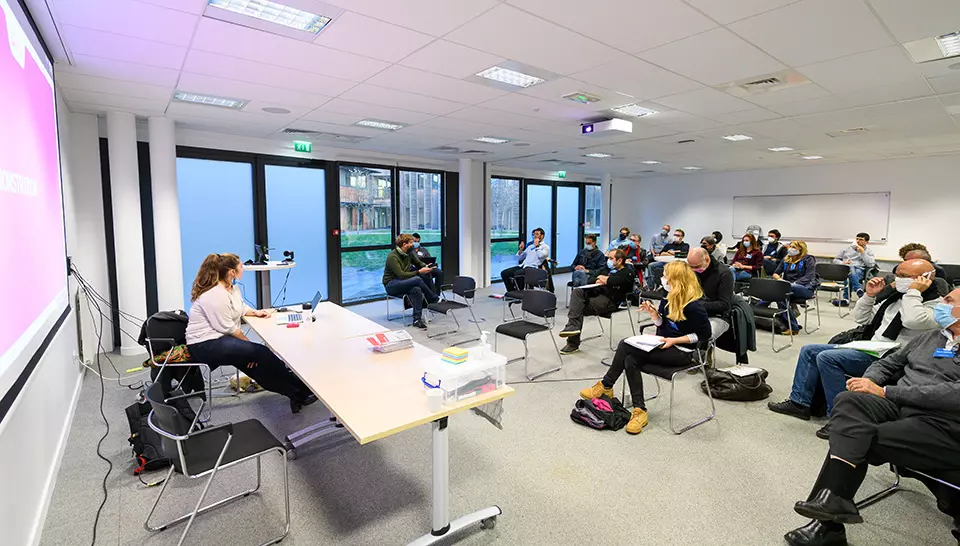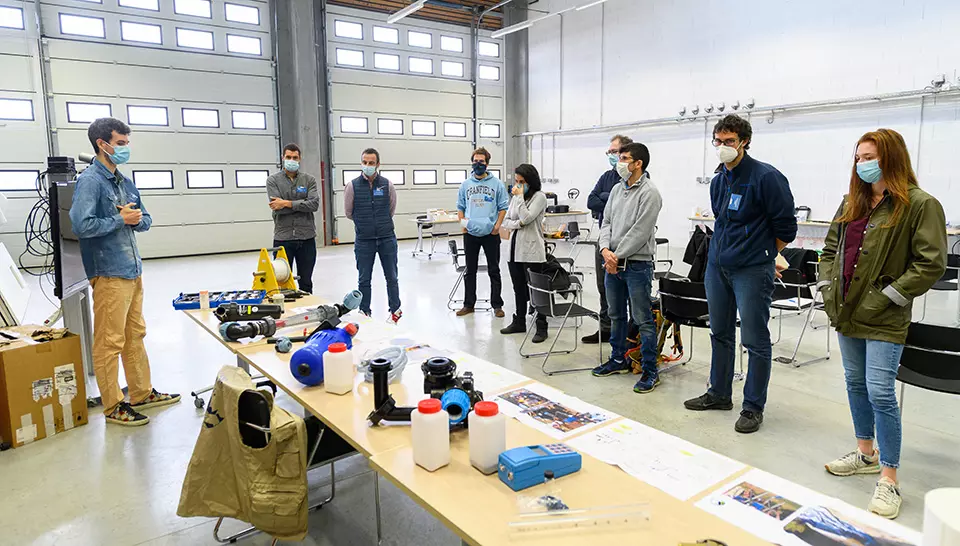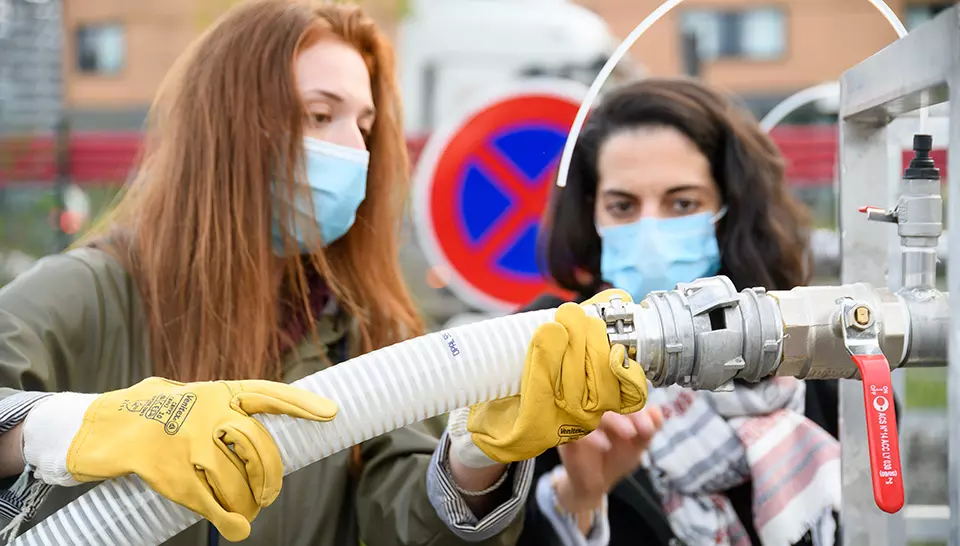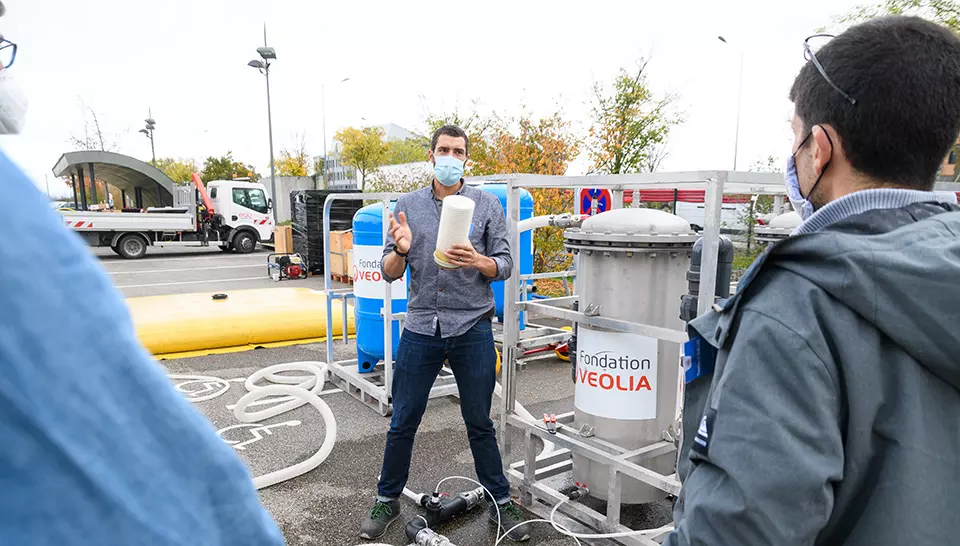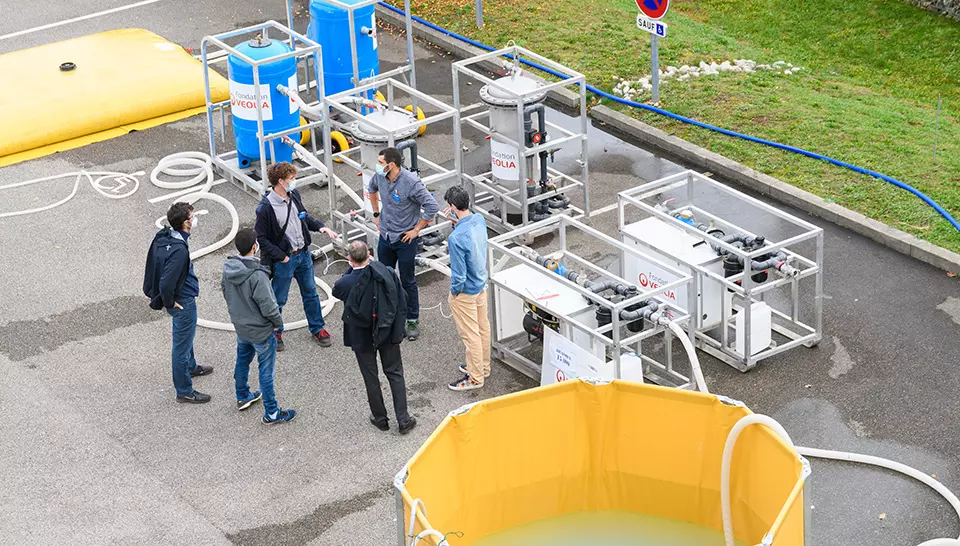On 29 and 30 October, the Partenariat Français pour l'Eau (PFE) and the Veolia Foundation invited sector stakeholders to discuss innovations and practices in the field in terms of access to water and sanitation during humanitarian emergencies. Some 30 Water, Sanitation and Hygiene (WASH) experts from NGOs, UN agencies and the private sector participated in the first "Ateliers WASH" on Campus Veolia in Lyon.
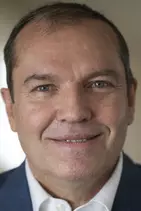
The two days combined practical workshops and lectures accessible both in person and remotely. Participants were able to familiarize themselves with the Aquaforce units, mobile water purification units designed by the Veolia Foundation, and get feedback from experiences in the field presented by NGOs and international actors.
Sanitation in emergency settings: feedback
Sanitation provides for both people's safety and the protection of the environment by eliminating pathogens and health risks and by reducing the concentration of some natural compounds and their environmental impact. Various feedback on the management and treatment of faecal sludge was presented:
- In Myanmar, in the Rohingya refugee camps, Solidarités International manages 35 m3 of faecal sludge per day produced by 4,000 latrines: after an emergency phase in 2012, the construction of an anaerobic treatment facility covering more than 6,000 m2 with filtration basins has made it possible to reduce pathogens and pollutants. For the past two years, the Veolia Foundation has been analysing the performance of these facilities, which will eventually reach a capacity of 60 m3 of sludge per day.
- In Haiti, Médecins sans Frontières (MSF) treats hospital effluents
MSF's objective: to reduce its long-term environmental impact. In fact, hospital waste water carries more pathogens than conventional waste water because of the cytotoxic drug residues it contains (from cancer treatments) and high concentrations of disinfectants. At the hospital built by MSF in the Drouillard district of Port-au-Prince, a unit treats effluents by combining biodisks, filtration and the UV disinfection of residual pathogens.
- In Bangladesh, the International Federation of Red Cross and Red Crescent Societies employs aerobic treatment solutions using an activated sludge process.
- The work of the Faecal Sludge Field Laboratory (FSFL), launched by the Austrian Red Cross with the Swiss Federal Institute of Aquatic Science and Technology (Eawag), is studying the performance of faecal sludge management in emergency contexts focusing on eliminating pathogens and reducing discharges. The consortium trains technicians and is contributing to developing an international sanitation standard for humanitarian settings. The Veolia Foundation is also launching work in partnership with the FSFL and is contributing its expertise to the project.
- In France: the reuse of grey water in humanitarian settings
The Bubblebox project, which the Veolia Foundation partners, was introduced to meet the hygiene needs of 3,000 migrants and refugees in the Porte de la Chapelle camp in Paris. This mobile autonomous hygiene module gives access to 3 shower cubicles which are installed in a container that recycles 5,000 litres of water for 6,000 showers every 5 days. Another prototype uses a mobile semi-trailer container, connected to the urban water and sanitation networks.
Prototypes in the pipeline
To provide access to drinking water in emergency situations, when there is no fresh water on the ground, several desalination prototypes were presented, including a mobile Veolia Foundation solution involving reverse osmosis. For sanitation, a mobile system currently in the pipeline uses a dual process that involves anaerobic digestion and faecal sludge hygienization.



